- Featured
- Animal Rights
- Anti-racism
- Arts & Culture
- Children
- Climate
- Corporate accountability
- Crime
- Disability rights
- Economic
- Education
- Environment
- Food and Sustainable Production
- Gender Equality
- Governance and Transparency
- Health
- Housing
- LGBT Rights
- Mental health
- Northern Ireland
- Planning
- Privacy and Data Protection
- Rural Inequality
- Social Justice
- Trade
- Transport and Infrastructure
- Workers' Rights
- More
-
Stop using Roundup in Cork CountyOur health is being affected by Roundup.15 of 100 SignaturesCreated by Siobhan O'Donoghue
-
Ban now the use of Glyphosate based and other toxic Weedkillers used by Roscommon County CouncilThese chemical based weedkillers are highly carcinogenic and linked to a variety of potentially fatal diseases. Monsanto's Roundup weedkiller, Pathclear, Gallup, Pistol, Weedol and Mossgo are to name but a few of the weedkillers currently on the market that contain the cancer causing chemical glyphosate which is lethal to all living organisms. Ireland has the second highest level of glyphosate in our surface water in the EU and the third highest death rate of cancer in Europe. To ensure a safer, cleaner living environment for our current and future generations we want a complete ban of glyphosate weedkiller. We are extremely concerned that our Agricultural sector/farmers are bombarded with misinformation and pressure from government bodies that are directly lobbied by toxic chemical companies. 1. https://www.irishtimes.com/news/environment/farmers-weapons-of-mass-destruction-carry-cancer-fears-1.3148492 2. http://greennews.ie/why-is-ireland-diluting-legislation-on-banning-hormone-changing-chemicals/ 3. https://www.euractiv.com/section/agriculture-food/news/france-tables-eu-wide-non-agricultural-pesticide-ban/368 of 400 SignaturesCreated by Patricia Keane
-
Stop Nursing Homes Charging Extra FeesNursing homes need to be up front with an 'additional charges'. Many elderly people are too infirm to participate in 'additional extra’s and services! whatever they turn out to be. A reported example is of some being charged €20 for Mass is disgraceful. All private nursing homes should publish their list of what they are charging for over and above the fee for care. The list of ‘services’ should have the cost next to each item listed as well.46 of 100 SignaturesCreated by Mairin Higgins
-
Clear diagnosis and treatment pathways for Ehlers Danlos Syndrome in IrelandEhlers-Danlos is a complex genetic condition resulting in faulty collagen. Because of this fault, patients' joints can dislocate on a daily basis, leaving us in agony. And that is only the beginning of the catalogue of symptoms that inflict us; some, life threatening. Early diagnosis and intervention is fundamental for long term prognosis and care, but unfortunately Ireland does not have one, qualified, appointed specialist in the whole country in the public health domain. This has lead to people with EDS/ HSD becoming so de-conditioned, with years of no medical intervention, that they cannot work, function and sometimes cannot walk. Without even initial diagnosis patients have no access to services or care. About me: My name is Kitty. I'm nearing 40 and a wheelchair user. I was only officially diagnosed in my late 20's, after a life in pain. I saw numerous specialists in various areas, spent my 20's on waiting lists. Some doctors and physiotherapists said they believed I had EDS, yet said they were not qualified to diagnose the condition. I relied heavily on learning about my condition from the community of other patients with EDS/ HSD, and realised my story isn't unique at all. We are not "rare' - we are rarely diagnosed. Once diagnosed it's nearly impossible to find a qualified physiotherapist, like with everything it is an Eircode lottery. We get no where on the treatment abroad scheme (especially in cases to see consultants) and as the main UK Hypermobility clinics are private this is automatically excludes us from the scheme. The HSE pretend we do not exist, quoting ridiculous numbers when asked how many of us there are in the country! My story isn't special, or unique -it's a very similar story for most patients in Ireland with these conditions. This cannot continue. People are literally being left to rot. Parents are forced to fund their children's healthcare instead of their own, because they often cannot afford to do both (as these are genetic conditions). We cannot let another generation of EDS and HSD patients go undiagnosed and untreated. Please support our campaign - Sign up the petition and share on social media. Follow us on Facebook and Instagram. ♡ www.eds4ire.ie ♡ https://www.facebook.com/eds4ire ♡ https://www.instagram.com/eds4ire ♡ https://www.youtube.com/kittycolberteds4ire7,051 of 8,000 SignaturesCreated by Kitty Colbert

-
Sneem needs a doctor.Our Doctor in Sneem will retire in October. During 33 years the village and the wider region of Sneem have been looked after by an outstanding, caring and deeply committed professional. But now the time has come to turn the page. We all know that Sneem needs a new doctor. Not only the elderly need a doctor, not only our Pharmacy needs a doctor in order to stay open, not only the young families in the town and the many visitors we welcome each year, also the groceries and all the shops and businesses depend on the presence of a local doctor in Sneem. As we live two and a half hours away from the nearest hospital, and forty minutes from Kenmare where the nearest doctor would be and no bus service to get us there, it is of vital importance that we have a doctor appointed for Sneem. We invite you to sign this petition and to ask your family and friends to help us make known all over Ireland that Sneem is looking forward to welcome and to support a new doctor.593 of 600 SignaturesCreated by Laurence Vanpoulle
-
Stop Roundup being used in BorrisBecause it is poison and carcinogenic18 of 100 SignaturesCreated by Fearghus Thesoundfarmer
-
Ban the use of Glyphosate by Leitrim County CouncilThese chemical based weedkillers are highly carcinogenic and linked to a variety of potentially fatal diseases. Monsanto's Roundup weedkiller, Pathclear, Gallup, Pistol, Weedol and Mossgo are to name but a few of the weedkillers currently on the market that contain the cancer causing chemical glyphosate which are lethal to all living organisms. Ireland has the second highest level of glyphosate in our surface water in the EU and the third highest death rate of cancer in Europe. To ensure a safer, cleaner living environment for our current and future generations we want a complete ban of glyphosate weedkiller. We are extremely concerned that our Agricultural sector/farmers are bombarded with misinformation and pressure from government bodies that are directly lobbied by toxic chemical companies. http://greennews.ie/why-is-ireland-diluting-legislation-on-banning-hormone-changing-chemicals/ https://www.euractiv.com/section/agriculture-food/news/france-tables-eu-wide-non-agricultural-pesticide-ban/622 of 800 SignaturesCreated by Cara Crews
-
Prevent The Mistreatment of People in DetentionThe Optional Protocol to the Convention against Torture (OPCAT) is an international human rights treaty designed to prevent torture and cruel, inhuman or degrading treatment or punishment in all places of detention. It introduces a combined system of national (NPM) and international (SPT) monitoring of all places of detention. Ireland signed the OPCAT in October 2007, but has yet to ratify it. The OPCAT recognises the central importance of inspection as a way of preventing human rights violations. These inspections create transparency and accountability, which in turn act as a deterrent against future cruel treatment. Places of detention are not limited to prisons. The OPCAT applies to anywhere where people are deprived of their liberty. The ratification of OPCAT would positively impact the lives of many people in vulnerable positions. Examples of places of detention could include, but are not limited to: • Psychiatric units • Children detention schools • Nursing homes • Social care units • Special Care Units • Immigration detention centres • Direct provision • Pre-trial detention facilities • Garda stations OPCAT applies to anywhere people are deprived of their liberty. Pushing for the ratification of OPCAT might one day benefit a friend, neighbour, family member, or maybe even yourself. For Ireland to meet its international obligations, we must put in place sufficient and effective safeguards to ensure that vulnerable individuals are not victimised. The Convention recognizes that it is in closed spaces where the most serious violations of human rights can take place. Ireland has a troubling history of failing to protect those we have placed in closed spaces. The historical abuse of those in child institutions and other historical places of detention has shown the need for ongoing inspection. By failing to ratify OPCAT, Ireland perpetuates a situation that increases the vulnerability of all persons currently in detention. It is essential that Ireland moves towards the creation of an NPM which can ensure that no place of detention – prison, Garda station, hospital or care home – is beyond the reach of comprehensive and rigorous inspection. _________ To learn more about OPCAT: http://www.apt.ch/en/what-is-the-opcat/ To learn more about NPMs: http://www.apt.ch/en/national-preventive-mechanisms-npms/ To learn more about the SPT: http://www.ohchr.org/EN/HRBodies/OPCAT/Pages/OPCATIntro.aspx To see which countries have ratified OPCAT: http://www.apt.ch/en/opcat-database/46 of 100 SignaturesCreated by Irish Penal Reform Trust (IPRT)
-
Remove prescription charges for homeless peopleHomeless people suffer more ill health than the housed population and therefore have a higher need for prescription medication. Many homeless people cannot afford the €2.50 prescription charge payable on every item. Homeless health services repeatedly come across homeless patients who cannot afford their medication and so may not complete a course of antibiotics or take heparin for a clot. They often end up in hospital because of this. Homeless people are registered with local authorities and therefore it is possible to identify individuals so they are exempt from this charge.2,524 of 3,000 SignaturesCreated by Safetynet Primarycare
-
24/7 cardiac care for the southeast NOW!!People lives are being put at risk with no 24/7 service available within the golden 90 minutes. We should not be forced to pass a fully equipped Cath Lab in Waterford to be sent in an ambulance to Cork or Dublin?13,922 of 15,000 SignaturesCreated by Yvonne Cooney
-
Protect & Expand NI Abortion RightsDUP MPs with extremist views on abortion must not be allowed to threaten an area of healthcare that one in three women will need in their lifetime. They must not be allowed to block the progress women deserve. It’s 50 years since the Abortion Act was passed and it needs to be extended not rowed back on32 of 100 Signatures
-
More Bicycle Parking for Galway City!In 2014 Sara Morris, spokeswoman for the National Transport Authority, advised of the allocation of €50,000 for the provision of additional bike parking to Galway City Council. Three years later, on the first day of National Bike Week 2017, Galway City is still massively lacking in the provision of bicycle parking with no evidence of where that money was spent. To date, there are still less than 200 bicycle parking stands in Galway City. With a population of just under 80,000 people this is clearly an inadequate number of bicycle parking spaces for Ireland’s forth biggest city. Bicycle parking is an issue that affects all members of our community here in Galway; from blocking pedestrian and disability access on our streets and footpaths to contributing to an increased number of cars on our roads. The lack of bicycle parking is a something that is driving commuters into their cars unnecessarily. Congestion in the city centre is at an all time high with Galwegians spending more time sitting in traffic than drivers than any other city in Ireland. An increased reliance on cars for transportation is not only adding to the levels of pollution in the city but is also negatively impacting the health, safety and wellbeing of our citizens. Galway City Council themselves acknowledge, through their Park’n’Stride Campaign, that an increased reliance on bicycles as a form of transport would not only alleviate traffic congestion but would also improve the physical and mental health of the population by incorporating exercise into everyday activities such as commuting. On this year, 2017, that Galway holds the European Green Leaf designation and in the lead up to Galway 2020 when Galway will see an increase in tourism, An Mheitheal Rothar is calling on the above mentioned individuals to not just make a commitment, but to immediately take action to increase in bicycle parking for the city and the appointment of an new Cycling Officer within Galway City Council. If you would like to support this campaign please sign the petition and follow us on social media for more information. You can also share the petition using #bikeparkinggalway We would also encourage you to express your concerns to: • Thomas Connell - Galway City Council Director of Services for Transportation, Recreation and Amenity, Corporate Services ([email protected]); • Hugh Creegan - National Transport Authority Director of Transport Investment and Taxi Regulation, Deputy Chief Executive ([email protected]) ; • Cllr. John Walsh ([email protected] )- Chairman, GCC Transport Strategic Policy Committee; • Cllr. Noel Larkin – Mayor ([email protected]), GCC Transport Strategic Policy Committee. As part of Bike Week 2017, An Mheitheal Rothar also took to the streets to speak with some of Galway's cycling community about their thoughts on cycling in the city. Watch our video here: https://youtu.be/sBxkyiRxYv8302 of 400 SignaturesCreated by An Mheitheal Rothar

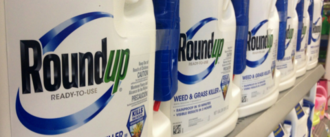.png)

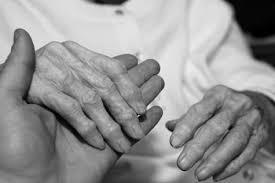


.png)
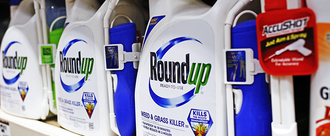
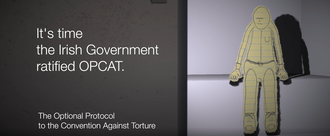

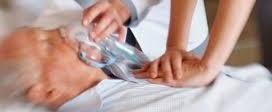
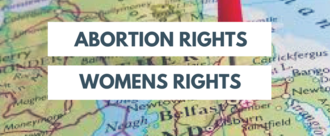.png)
